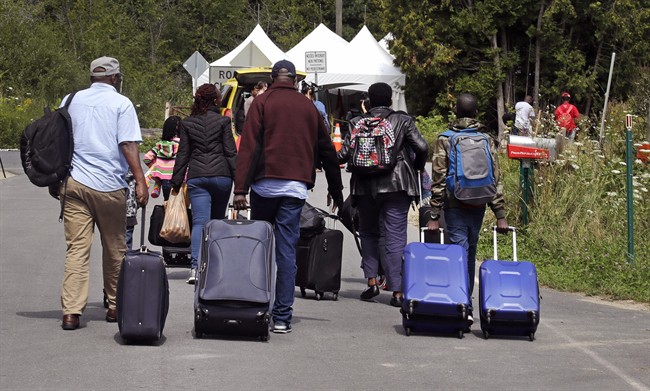Quebecers living near the Canada-United States border, where thousands of migrants have crossed irregularly into the country since 2017, will receive more than $400,000 to compensate them for increased traffic and noise.

An order paper tabled by the federal government last month projects 45 households near Roxham Road will divide up $405,000, with individual compensation based on each home’s proximity to the border.
READ MORE: Quebec says Ottawa owes it $300 million for costs related to influx of asylum seekers
The document says eight homes will receive the maximum compensation of $25,000, 15 will receive $10,000, and 22 households in the outermost zone will receive $2,500.
The government has budgeted up to $485,000 for the payments, which includes a contingency fund in case more households are deemed eligible.
WATCH BELOW: Canada spent $166 million dealing with asylum seekers

Roughly 96 per cent of all migrants who have crossed illegally into Canada since 2017 have done so at Roxham Road, about 50 kilometres south of Montreal.
READ MORE: U.S. inches closer to allowing talks to amend Safe Third Country Agreement
A spokesperson for Border Security Minister Bill Blair says households along the once-quiet country road have had to contend with increased traffic, noise and the construction of temporary border security infrastructure since the migrants began arriving
- Train goes up in flames while rolling through London, Ont. Here’s what we know
- Budget 2024 failed to spark ‘political reboot’ for Liberals, polling suggests
- Wrong remains sent to ‘exhausted’ Canadian family after death on Cuba vacation
- Peel police chief met Sri Lankan officer a court says ‘participated’ in torture




Comments